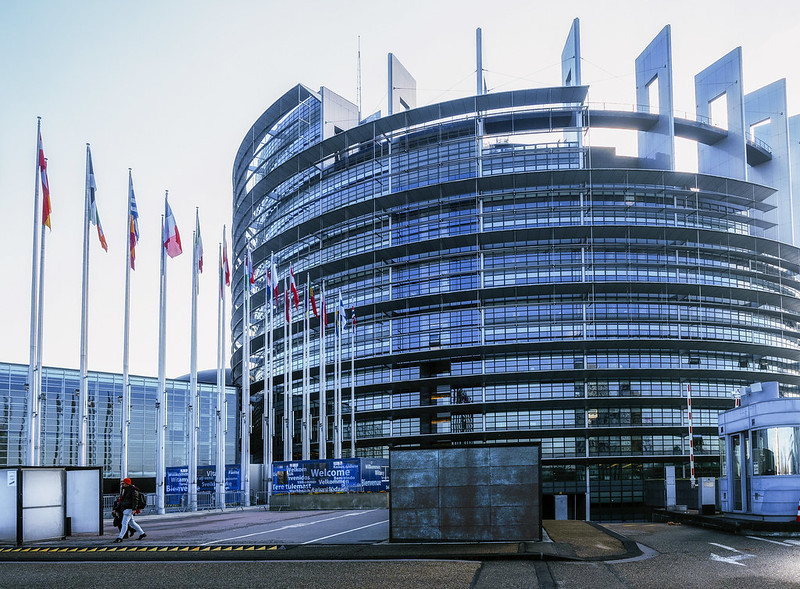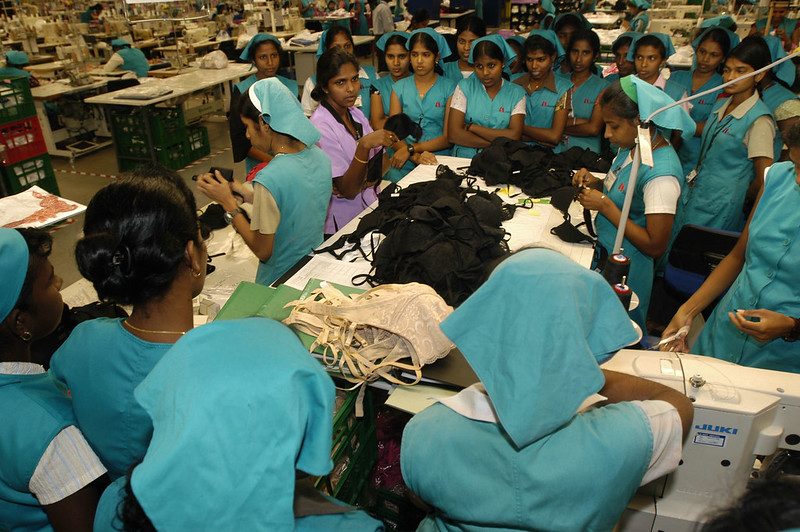
The EU parliament has passed a new resolution on Sri Lanka expressing “serious concern at the rapid deterioration of human rights” on the island and urging the Council to consider targeted sanctions against senior Sri Lanka officials accused of war crimes.
The resolution also calls on the Council to investigate and prosecute war crime abuses; to suspend funding for the training of Sri Lanka’s security forces; and to suspend the favourable trading preferences granted by the GSP+ agreement.
The resolution was adopted on Thursday with 628 votes in favour, 15 against and 40 abstentions and comes ahead of the Council’s next periodic GSP+ review in November 2021.
The resolution further highlights “increasing restriction of civic space, the widespread arbitrary arrests and detention without due process, the targeting of minorities and the increasing militarisation of the government”.
A cycle of violence
![]()
The resolution also expressed extreme alarm at the findings of the UN Human Rights Council 2021 report noting that Sri Lanka is on a path towards the recurrence of policies and practices which previously gave rise to grave human rights violations. They further add that “ongoing impunity and lack of justice for crimes committed during the civil war is a barrier to reconciliation, and risks perpetuating a cycle of violence”.
It also notes the need “for investigations of members of the security forces accused of recent and historic serious human rights abuses, and for those found guilty to be held to account”. They also highlight that many Sri Lankan officials implicated in war crimes remain protected from investigation by the Sri Lankan authorities and call on the Council to consider targeted sanctions.
The resolution further expresses the need for “a rigorous, impartial and complete investigation into the 2019 Easter Sunday bombings, and promptly bring to trial conforming to international legal standards those against whom there is evidence of responsibility, and release those for whom there is insufficient evidence”.
Read more here: Remembering the blasts – 2 years on from the Easter Sunday attack
Prevention of Terrorism Act
![]()
The resolution also calls for Sri Lanka to repeal its “abusive and draconian” Prevention of Terrorism Act (PTA) and to immediately suspend the “deradicalization” regulation. Whilst Sri Lanka had previously agreed to repeal the legislation, the Rajapaksa administration has abandoned this commitment and in March expanded the PTA under the veil of “deradicalization”. Repeal of the PTA was a key element under the GSP+ agreement however despite the failure to repeal the bill, the EU reinstated these favourable trading agreements with Sri Lanka in 2017.
The new resolution also calls for the release of a number of people who remain arbitrarily detained by the state. They include well-known Muslim lawyer Hejaaz Hizbullah and Muhammadhu Jazeem Muhammadhu Ahnaf, a 26-year-old Muslim and teacher from Northern Sri Lanka who was arrested by the Counter-Terrorism Investigation Division (CTID) of the police last year for allegedly promoting “extremist ideas” in a book of poetry he published in 2017.
Crackdown on civil society
The resolution further identifies Sri Lanka’s crackdown on civil society and calls on the government to “to cease the surveillance and intimidation of members of civil society and human rights defenders using the terrorism division of the police force and state intelligence services”.
It further urges the government to “refrain from using allegations of “terrorist financing” to deny civil society organizations access to legitimate sources of funding”. The resolution follows a wide-reaching prohibition of several Tamil diaspora and Muslim organisations, as well as hundreds of individuals, which were dedicated to campaigning for human rights.
The resolution also expresses alarm at the “increasing attacks and arrests of journalists, academics, and civil society activists”. The EU urges Sri Lanka to “take immediate steps to ensure their right of freedom of expression are upheld” and urges “the EEAS and Commission to intensify support for civil society and human rights defenders on the ground”.
Last week a senior Sri Lankan official sparked outrage after he claimed that the dozens of journalists who had been murdered on the island were “third-class ones”, in comments made to reporters at a press briefing last week.
The comment comes as Sri Lanka remains one of the most dangerous places in the world for journalists with the island remaining 127th out of 180 countries on the Reporters Without Borders World Press Freedom Index.
Earlier this year the former Sri Lankan MP Karu Jayasuriy said at least 117 journalists have been killed of have disappeared since 1981 and an "innumerable number have been subjected to great repression".
Journalists for Democracy in Sri Lanka (JDS) recorded that as least 44 journalists had been killed or disappeared from 2004 to 2010 alone. Most of those journalists were Tamil (41) and from the North-East. The true figure is thought to be much higher.
Religious and ethnic discrimination
![]()
The resolution further spoke out against the deplorable discrimination and violence towards religious minorities “including Muslims, Tamils and Christians”. It emphasised the need for the government to “unequivocally condemn hate speech, incitement to violence and discrimination against religions minorities in the country, and to hold to account those who advance such divisions, including within the government and military”.
The recognition that racism is an institutional problem in Sri Lanka is further denoted in the resolution which deplores the “new legislation and regulations which discriminate against ethnic and religious minorities” and calls for the Government to “uphold freedom of religion for minority religious” and to instruct Sri Lanka’s “security forces to cease the targeting of minority groups”.
Attacks on workers’ rights

(Photo of Sri Lankan Garment Workers, Credit ILO Asia-Pacific)
A further concern raised is over the deteriorating labour rights’ situation, particularly in light of the COVID-19 pandemic. Sri Lanka is urged to “cooperate fully with the ILO to strengthen labour rights of factory workers including the health and safety conditions for garment workers in Special Trade Zones”.
The resolution follows a damning report by Amnesty International which highlighted Sri Lanka’s mishandling of the pandemic and abuse of garment factory workers. Civil society actors and trade unions in Sri Lanka have maintained that “whilst government and factory owners reap these profits, the workers remain unprotected, not prioritised for vaccination and largely left to fend for themselves”.
Sri Lanka’s President has ordered for development plants and factories to remain open despite the threats posed to workers and those who do not comply risk losing their employment.
Last year, a complaint was filed with the Human Rights Commission of Sri Lanka, by representatives of the Free Trade Zone (FTZ) factory workers alleging “cruel, inhumane or degrading treatment” of 98 factory workers, the majority of which were women. Factory workers were forced into quarantine centres by the military.
Read more here: Amnesty International slams Sri Lanka's discriminatory COVID-19 response
Death penalty
Another concern is over Sri Lanka’s policy towards the death penalty with the resolution expressing “the European Union’s strong opposition to the death penalty, in all cases and without exception” and maintaining that Sri Lanka must “carry out any executions and to abolish the use of capital punishment in the country”.
Read the full resolution here.


